

If you have or plan to have a WordPress website, you will eventually need to choose between regular web hosting and WordPress hosting.
The wide range of resources and companies offered in both services can overwhelm any specialist you select.
I will outline the primary distinctions between the two hosting types and assist you in selecting the ideal option for your website.
- Comparison overview (chart)
- What is website hosting and WordPress hosting?
- Website hosting services
- WordPress hosting
- WordPress compatibility – Suitable for use with WordPress
- WordPress Installation
- Automatic updates are updates that occur automatically without the need for manual intervention.
- Infrastructure and its impact on performance
- Security characteristics
- More Supplementary Materials
- Technical assistance
- Website Hosting Prices for WordPress Hosting
- Web hosting services
- WordPress Hosting
- What is the optimal choice in the end?
- Website Hosting services
- WordPress Hosting
- Website Hosting services
- WordPress Hosting
Summary: Comparing hosting websites with hosting WordPress.
If you prefer not to read the entire article for an answer to your question, refer to the table below. It provides a summary comparison highlighting the main distinctions (and similarities) between hosting websites and hosting WordPress.
| Website Hosting | Hosting WordPress | |
|---|---|---|
| Compatible with | Sites and diverse applications | Only WordPress Sites |
| Installation of WordPress | Manual or via application installer | Automatic via hosting control panel |
| Updates | Manual or automatic (depending on the company) | Automatic, can be manual if the customer wishes |
| Infrastructure | Standard | Optimized for WordPress, including differentials like CDN and others |
| WordPress Security | Standard, varying according to the company | Above the average, with specific aspects of WordPress covered |
| Additional Resources | Rarely offers something beyond automatic installation | In addition to those mentioned above, it can include premium themes and plugins at no extra cost |
| Technical support | Standard, usually does not include WordPress in the scope | Includes WordPress in the scope, being able to assist in configuring plugins and themes |
| Price | Among the cheapest on the market, with plans costing little real monthly | Varied, but usually more expensive than shared hosting |
| Suitable for | Who wants to run WordPress on their own and/or have a low cost in hosting | Who doesn’t want to handle settings and want to have an optimized environment and extra features, paying a little more for it |
| Business | View the best lodgings | View the best hotels WordPress |
To explore the topic further, keep reading to gain a deeper understanding of the key points outlined in the table.
What do hosting site and hosting WordPress refer to?
We will now explore the idea of web hosting and WordPress hosting to compare their different aspects and features.
Website hosting with cPanel or a custom control panel.
Traditional websites hosting, also called shared hosting, is popular globally due to its affordability and user-friendly nature. The cost-effectiveness is attributed to multiple clients sharing a server, while hosting companies strive to cater to both novices and experts.
Shared hosting is suitable for various website types, including WordPress sites, and can provide excellent performance as long as proper WordPress practices are followed. Many WordPress sites are currently hosted on shared hosting and can remain in this environment for a long time if managed well.
Other hosting options like VPS, dedicated server, and Cloud can support WordPress as well. These options involve more intricate environmental management and demand higher technical expertise. Moreover, they are more powerful than shared hosting, hence they are not discussed in this article.

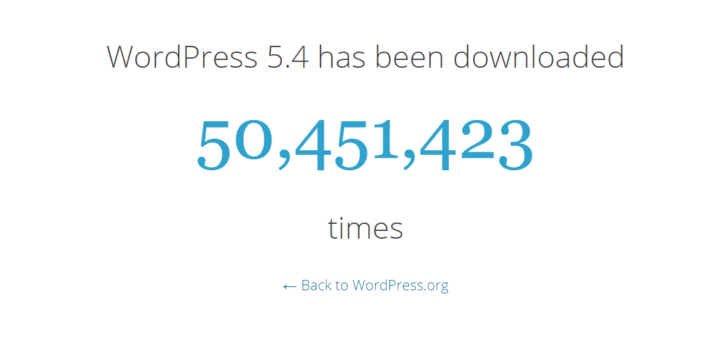
Why WordPress is a good choice for building your website: 15 Benefits
WordPress hosting
Hosting companies have started offering services dedicated to WordPress due to its increasing popularity, providing unique benefits compared to traditional shared hosting.
WordPress hosting services vary significantly from one another due to the versatility of WordPress and its ability to be used for a wide range of purposes, unlike traditional website hosting services that typically offer similar features across different companies.
There is no definitive answer to why someone might choose website hosting or WordPress hosting, as it depends on various factors. The main features and differences between the two options will be compared.
Check out: Top choices for your application’s PHP Hosting.
WordPress compatibility refers to the ability of a product or service to work effectively with the WordPress platform.
The primary factor to consider when deciding between regular hosting or WordPress is how compatible it is with the platform.

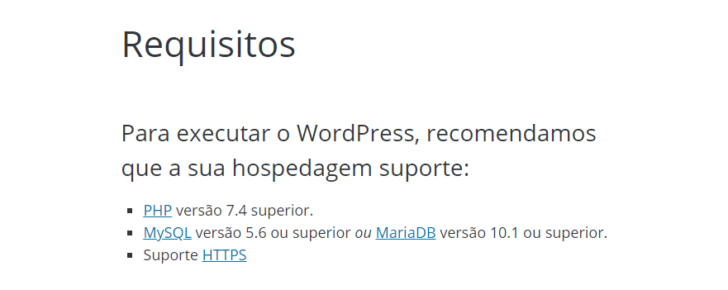
Most companies that provide shared website hosting plans offer a WordPress-friendly setup. While certain customization options, like the latest PHP version 7.4, may not be accessible, this typically does not pose an issue. However, it could result in slightly lower performance compared to a WordPress-specific hosting environment.
It’s important to mention that this doesn’t stop WordPress from being installed and used on shared hosting, which is very common.

chsyys/FreeImages
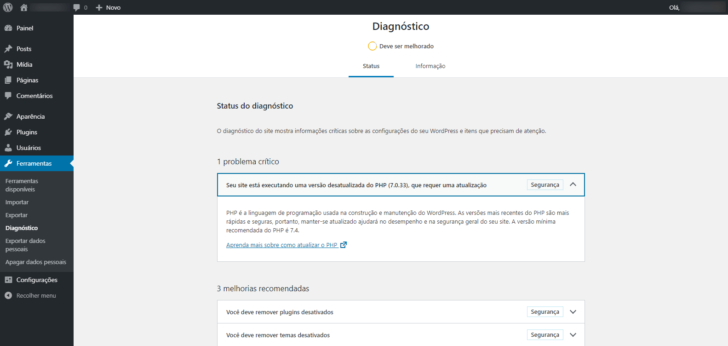
Companies providing WordPress hosting plans ensure full system compatibility, incorporating all recommended WordPress modules like Apache and NGINX. This is due to the platform being designed exclusively for hosting WordPress websites, guaranteeing 100% compatibility when choosing such a service provider.
WordPress Installation
Installing WordPress is the initial action in setting up a website using the platform, and we will explore how this process is handled in both regular site hosting and WordPress hosting.
WordPress can be set up in shared hosting either automatically or manually, using installers found in the hosting control panel, such as Softaculous or Installatron for cPanel users. Automatic installation of WordPress is also available for companies not using cPanel.
Some companies are now integrating artificial intelligence (AI) tools to help with the setup, development, and editing of WordPress websites. HostGator provides an illustration of this practice.
During the WordPress installation process, users have the choice to enable or disable automatic updates for WordPress, themes, and plugins. The availability of this option varies based on the control panel and automatic installer used by the hosting company.

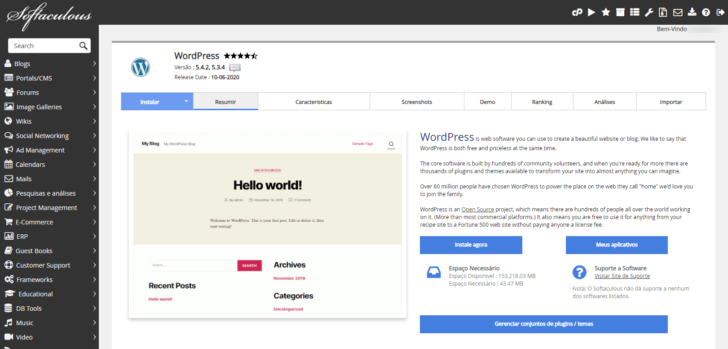
System installation in WordPress hosting is typically more user-friendly compared to shared hosting. Clients usually only need to provide basic information, such as the site name and domain, and the installation is done in the background. This streamlined process is designed to cater specifically to WordPress sites, offering a more seamless and tailored experience.

chsyys/Flickr
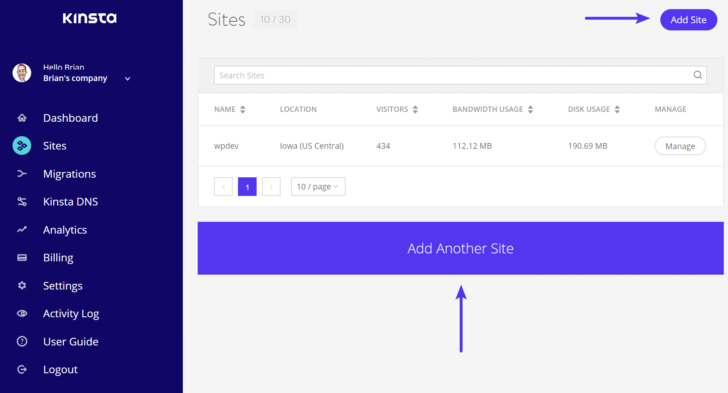
Automatic updates are installed automatically.
WordPress and its additional features are regularly enhanced through updates due to being a dynamic and continuously developing platform.
Four different kinds of updates can happen.
- Core updates in WordPress are also known as version updates, and they are categorized into VersionSecurity.
- Paraphrased: Edition
- Safety
- Plugins are software components that add specific features or functionalities to a larger software application.
- Themes discussed in the text
- Translations of text
- Adaptation
- Security – Protection against threats
All updates can be completed within the WordPress dashboard, regardless of the installation type. It is important to be aware of potential issues that may arise, such as compatibility problems between the new WordPress version and specific plugins due to its diverse nature with various contributors.
For safety reasons, it is advised to create a backup of both files and the database before updating. Automated update systems are useful, especially for those who find the process too complex.
Automatic update systems for WordPress should take precautions to minimize risks associated with pressing the “updating” button.
In a WordPress-focused hosting service, you typically have access to a reliable backup system for site recovery and a version control feature for managing past site versions. These tools are crucial for safeguarding your site and making it easy to revert to previous states if needed. Some WordPress hosts also provide a testing environment, known as a staging area, where you can test site modifications before making them live, including plugin, theme, and WordPress updates.

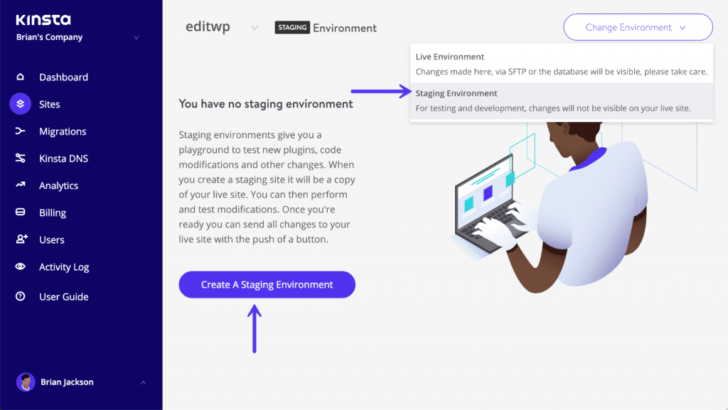
In typical web hosting services, testing changes may not always be possible and backup systems may not be frequent or affordable enough to prevent incidents. Requesting backup restoration through support may also incur additional costs in some cases.

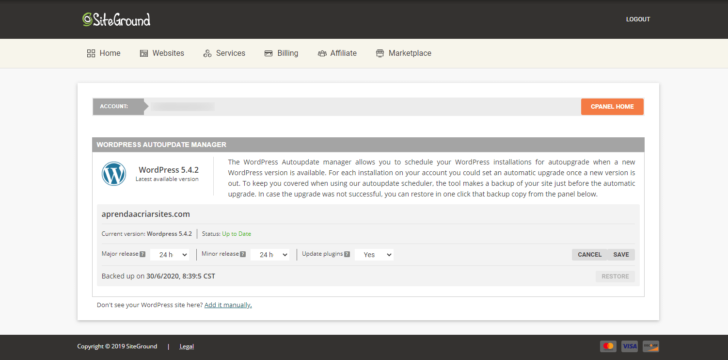
chsyys/Pexels
When deciding between WordPress hosting and regular hosting, pay attention to this matter, especially if you lack technical knowledge and prefer to avoid dealing with more intricate configurations.
Website hosting infrastructure and WordPress hosting performance
The infrastructure refers to the setting in which a website is located, including the technologies in the data center and the specifications of the server, such as software, processor, memory, and storage technology. Different types of hosting services, like general website hosting and specialized WordPress hosting, can have notable variations.
WordPress hosting aims to provide better performance compared to regular hosting by investing in hardware and software.
The top WordPress hosting choices provide SSD storage for faster performance compared to traditional hard drives. They also offer more powerful servers with fewer clients.
Specialized WordPress hosts have an advantage in software aspects because the server doesn’t have to be set up for various WordPress applications, eliminating the need for extra software and services found in traditional website hosting. This allows the web server to be optimized with the best configuration for WordPress.
Frequently, in WordPress hosts, we encounter:
- The most recent and highly suggested PHP version.
- Cache or proxy system that operates in reverse (e.g. NGINX).
- Content distribution network (CDN)
- Access and control can be done through a terminal using SSH and WP-CLI.
- Among other things.


If performance is crucial for your project, consider and compare the available options between website hosting and WordPress hosting.
Security attributes
WordPress, like any online system, is vulnerable to cyber attacks and security threats. The official platform provides a list of guidelines for maintaining WordPress security, which may be intimidating for beginners in the field.
The list is designed for advanced users, theme developers, plugin developers, and hosting environment administrators, although it also includes recommendations for users of all levels.
Some vulnerabilities in WordPress include:
- Subjects;
- Plugins;
- Out-of-date WordPress versions, themes, and plugins.
- Weak passwords;
- Incorrect permissions for files and folders.
- Security breaches found on hosting server.
- Among other things.
It is evident that even novice users need to pay some attention to the security concerns of WordPress.
Hiring a WordPress hosting service that already includes security measures for recommended aspects can make a significant impact.
Traditional web hosts typically provide basic security measures at the server level, including automatic installers for configuring file and folder permissions and database security. However, these measures may fall short of ensuring a strong level of security.
Specialized WordPress hosting offers enhanced security features that surpass those provided by traditional hosting, such as automatic updates for themes and plugins, regular site scans for potential breaches, and the ability to restore previous versions if needed.
The user plays a crucial role in maintaining security, whether they opt for regular hosting or WordPress hosting, by using strong passwords and ensuring the system is always up to date.
Extra functions for WordPress
In a competitive market, companies often engage in a race to stand out from their rivals and gain competitive edges. This situation typically benefits customers by providing them with improved and more innovative services.
The principle remains the same when deciding between hosting a website or hosting WordPress. Differences can be found in the two service options, and customers should consider this when making a choice.
WordPress hosting providers frequently include additional features in their packages, aside from the various benefits mentioned in this article. These features typically include:
- Premium themes that are usually paid for are available for free in certain situations.
- Premium plugins that are typically paid for are now available for free.
- Other items highlighted in the article include backups, CDN, and version control.
DreamHost’s DreamPress WordPress hosting includes the JetPack Pro signature, valued at $299 per year, at no extra cost. Hostinger’s WordPress hosting provides free CDN, daily scanning, and site versioning with just a few clicks. GoDaddy’s WordPress hosting offers access to numerous free themes and plugins as part of the plan.
WordPress Technical Assistance
Technical assistance is a crucial factor to think about when selecting a web hosting service. Different companies provide varying levels of support, with some offering basic self-help resources and limited human assistance, while others offer more extensive help, including plugin and theme configuration.
When choosing website or WordPress hosting, it is important to inquire about the level of customer support provided by the company. Experienced users may also require technical assistance at some point.
In guesthouses focused on WordPress, it is typical to receive assistance that includes additional details not found in standard plans. Companies like WP Engine and Kinsta, which offer exclusively WordPress services, provide support for WordPress settings, a feature often absent in popular shared hosting providers.
Companies providing extensive technical support typically charge higher fees, reflecting the additional commitment required. Opting for premium support can offer peace of mind, but may come at a higher cost. Alternatively, clients facing budget constraints may need to invest extra effort in resolving setup issues independently.
WordPress hosting costs compared to regular hosting
More resources typically lead to increased expenses in service provision, suggesting that WordPress hosting may be pricier than shared hosting. However, this is not always the case, as there are hosting options available for various needs in both WordPress and shared hosting services.
We will examine some of the key choices available in both types of hosting.
Website Hosting – Hosting for websites
Shared website hosting is one of the most affordable services available due to intense competition in the sector, which helps to maintain low prices.
HostGator is considered one of the top choices for cost-effective web hosting, offering a starting plan for under R$ 15. Locaweb and GoDaddy also provide entry plans at comparable prices.
Hostinger is one of the most affordable choices, offering plans for less than R$ 10 per month. It’s essential to carefully consider the details and unique features of each company when selecting a service provider in this category, as prices tend to be very close. Check out our monthly comparison of the top website hosting options for assistance.


WordPress hosting
You can opt for a WordPress hosting service at a low cost of less than R$ 10 per month from providers like HostGator or GoDaddy. These services are budget-friendly and cater to users seeking WordPress hosting features without a high price tag.
Two excellent international companies, SiteGround and DreamHost, are recommended by WordPress.org. They are slightly pricier options compared to local ones due to the weakening of the real against the dollar, but offer high quality and value for money.
Kinsta, Media Temple, and WP Engine are top-tier hosting options priced at over $20 per month, delivering superior service ideal for WordPress-dependent online businesses like e-commerce sites and high-traffic blogs. Check out our monthly comparison of top WordPress hosting services for further details.


What is better: hosting a WordPress site or regular hosting?
If you’re here, you probably have an idea about the hosting you want for your WordPress site. If you still have questions or want to double-check your choice, review the summary provided for each option.
Opt for shared hosting if you are ready to:
- Install and keep WordPress up to date by yourself.
- Set up necessary items like SSL / HTTPS.
- Configure certain features such as cache and CDN manually.
- Accommodation costs are low while still offering quality service.
If you desire to, you can opt for WordPress hosting services.
- WordPress can be installed automatically.
- Automatic updates for WordPress version, themes, and plugins.
- Frequent backups can be done automatically without the need for manual setup.
- Ability to preview modifications prior to making them live.
- Additional security elements like malware protection are available without the need for any setup.
- A distinctive service, even if it comes at a slightly higher cost.
WordPress hosting includes various additional features that benefit both beginners and experienced users. However, the higher cost of this service may deter some users and encourage them to configure and optimize on their own.
WordPress hosting can be a great option for those who prefer to focus on writing and delegate other tasks to professionals.
Discover the top specialized hosting plans for WordPress in our rankings and enjoy learning more about them.
Publication date: 03/07/2020 (revised on 25/04/2025)
Tags: WordPress Comparison


